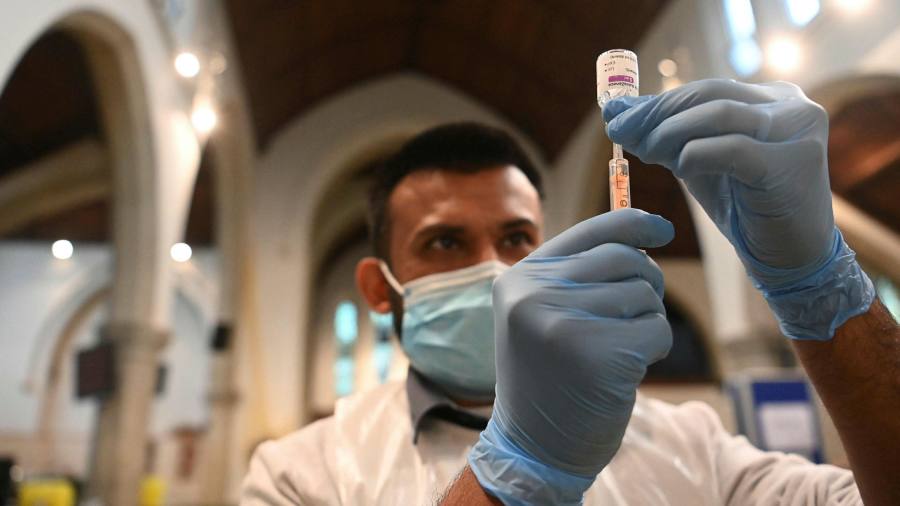[ad_1]
The UK regulator will not require “lengthy†clinical studies to assess Covid-19 vaccine modifications to tackle new variants, it announced on Thursday, with approval possible in as little as two weeks after final data is received from manufacturers.
The decision, which was taken by Access, a consortium of regulators from the UK, Australia, Canada, Singapore and Switzerland, states that vaccine manufacturers would need to demonstrate that their modified jab produces a robust immune and antibody response using blood samples in the lab.
Dr June Raine, chief executive of the Medicines and Healthcare products Regulatory Agency (MHRA), said that since late last year there had been concerns about the appearance of variants from the UK, South Africa and Brazil.
“We have a clear goal that the future vaccination modifications that respond to the new variants of coronavirus can be made available in the shortest possible time to UK recipients without compromising at any stage on safety, quality or effectiveness,†Raine added.
“I’d like to emphasise that to date we don’t have evidence the vaccines in use in the UK are significantly lacking in effectiveness.â€
A decision as to whether an adapted vaccine was needed would be taken by public health authorities rather than the MHRA, Raine said, “but we are prepared, and we are prepared to move very fastâ€.
The MHRA said manufacturers would not need to conduct “time-consuming†clinical studies in human participants as they did for the original vaccine discovery process, as these “do not add to the regulatory understanding of a vaccine’s safety, quality or effectivenessâ€.
Christian Schneider, the agency’s chief scientific officer, said: “Our priority is to get effective vaccines to the public in as short a time as possible, without compromising on safety.
“The public should be confident that no vaccine would be approved unless the expected high standards of safety, quality and effectiveness are met.â€â€¯
He likened the process to the kind of tests a car would need to undergo after a new engine had been fitted, where the vehicle had already proved to be safe.
The approach is modelled on the one used to modify the seasonal flu vaccine every year to match new variants in circulation, the MHRA said.
Vaccine manufacturers will also have to provide evidence that the modified inoculation is safe and of the same quality, which will be examined alongside data from the original clinical trials in tens of thousands of human participants. However, the adjusted vaccine may need to be tested on only a few hundred people, rather than the thousands who participated in the original clinical trials.
The MHRA will use the rolling review process that enabled the UK to beat the rest of the world to its first Covid-19 vaccine approval. Raine said: “As soon as data is available from the manufacturer . . . we will be looking at it in real time.â€
She added that approval could be given as quickly as a couple of weeks, “but the whole programme has to start, and we believe has started already, at the manufacturer endâ€.
Researchers were now much better able to measure protection by looking at antibodies following vaccination, reducing the need to wait and see if people became infected, Raine said. Data were also available from the original robust clinical trials as well as “real world†evidence now the vaccines were in use.
[ad_2]
Source link





